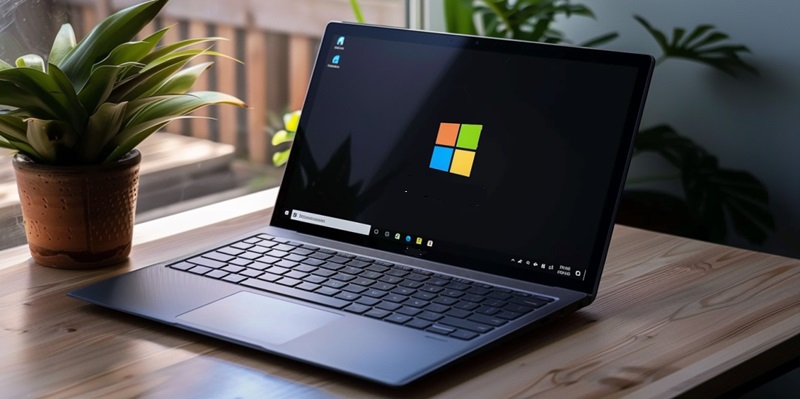Windows 11’s latest update, KB5037771, marks Microsoft’s dedication to ironing out persisting technical issues while striving to enhance overall system stability and functionality. Critical fixes and the introduction of controversial Start menu ads dominate the discussion among its various upgrades and new features. This update reflects the evolving needs of modern operating systems and Microsoft’s strategic focus on pairing user experience with robust security measures.
Addressing Technical Issues and Security Enhancements
Critical Bug Fixes and Improvements
The KB5037771 update steers Windows 11 toward greater reliability by amending several critical defects. Domain controllers are now more robust, VPN connections more stable, and SMB clients are freed from previous snags that hampered smooth interactions with network storage. These improvements are pivotal, particularly for corporate environments where seamless integration of these services is non-negotiable for daily operations.
Moreover, latency issues on low-latency networks and bootloader setup conditions have been rectified, along with performance enhancements. These refinements prevent common system snags, contributing to an operating system that’s both nimble and dependable, delivering the promise of a seamless computing experience for individual and enterprise users alike.
Security Updates and Protections
Alongside functionality, Microsoft underscores its commitment to cybersecurity with KB5037771. The update fortifies defenses by revising the Windows Kernel Vulnerable Driver Blocklist. It closes security gaps, like those that permitted the bypassing of Protected Process Light (PPL) protections. These advancements not only fix known vulnerabilities but also anticipate future threats, thereby entrenching the security of users’ systems in an increasingly precarious digital landscape.
Additionally, cybersecurity tactics are honed with the update’s measure to prevent Bring Your Own Vulnerable Driver (BYOVD) attacks. This enhancement aligns with Microsoft’s strategy of proactive defense, constantly refining its guard against the sophisticated and evolving nature of cyber threats.
Controversy and Customization Options
Introduction of Start Menu Ads
Microsoft’s decision to interweave “app recommendations”— effectively ads— within the Start menu spurred a mixture of reactions from users. This change represents a bold move intended to bolster user engagement with the Microsoft Store by implicitly encouraging the discovery of new apps. However, critics deem it an intrusion on the user interface, viewing it as a monetization tactic at the expense of user experience clarity and simplicity.
Disabling Unwanted Features
Acknowledging user preferences for a tailored and ad-free environment, Microsoft allows users to expunge these app promotions from their Start menu. This is achieved by navigating to the system’s settings, where one can delve into the Personalization panel and simply deactivate the feature. By doing so, Microsoft balances its new marketing strategy without imposing it on all users, thus maintaining a level of customization that many users appreciate.
System and User Experience Enhancements
Widgets and Windows Subsystem for Linux 2 Updates
The KB5037771 update delivers not only technical resolutions but also polishes user experience aspects of Windows 11. It notably enhances the clarity of taskbar Widget icons, rectifying a previously reported pixelation glitch. A fresh batch of animated icons has also been deployed, adding a dynamic touch to the Windows environment.
In tandem with these visual improvements, the Windows Subsystem for Linux 2 (WSL2) received well-deserved attention, focusing on compatibility and performance enhancements. Such updates demonstrate Microsoft’s recognition of the diverse toolsets its users employ, including those relying on Linux within their Windows environment.
Miscellaneous Enhancements and Issues
Although the update brings a host of improvements, it is not without its quirks. A notable post-update glitch is the emergence of error code 0x80070520 when users attempt to change their account picture. Microsoft has acknowledged this hiccup, assuring users that a remedy is underway in a forthcoming update.
Additionally, new policies in mobile device management, specifically those marrying the Snipping Tool with greater administrative controls, illustrate the tech giant’s push for broadening manageability and refining user interface nuances. These enhancements, alongside adjustments aimed at memory allocation and performance, signal Microsoft’s attention to the granulating details influencing the daily computing experience.
Implications for IT Administrators and Cybersecurity
Manageability and Infrastructure Impact
For IT administrators, KB5037771 lends a helping hand through the introduction of new Group Policy supports for ARM64 .msi files, among other practical enhancements. These updates are strategic levers that provide better control, manageability, and smoother app installation processes— a nod to Microsoft’s cognizance of the intricacies of corporate IT ecosystems and their continuous need for optimization.
Cybersecurity Measures
Microsoft’s recent release of the KB5037771 update for Windows 11 exemplifies their commitment to refining the OS and bolstering its reliability. This update addresses several critical issues users have encountered, smoothing out wrinkles that have impacted the system’s performance. Furthermore, Microsoft has taken steps to improve the functionality, showing their intent to evolve with user demands and technological advancements. Notably, the update has spurred conversation due to its introduction of ads within the Start menu, a move that has been met with mixed reactions. As the digital environment becomes increasingly complex, Microsoft is clearly prioritizing a balance between an intuitive user experience and stringent security protocols. This focus is central to their strategy of maintaining Windows 11 as an up-to-date and secure platform, ready to handle contemporary challenges. The KB5037771 update is thus a significant stride in their ongoing mission to perfect the operating system.

